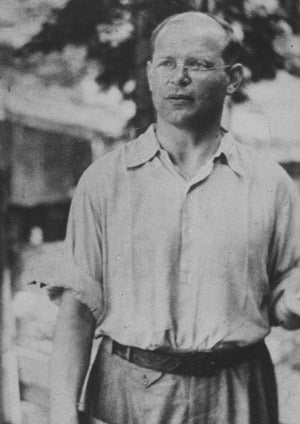Bonhoeffer profile: Pioneer who thinks of children as his 'family'

Philipp Bonhoeffer grew up in Germany and received his medical training in Milan. Early in his career he became interested in improving the care of children in developing countries and designed a number of low-cost, low-risk devices for treating heart patients.
He joined the charity Chain of Hope, founded by the heart transplant pioneer Sir Magdi Yacoub, and served as director of its medical board.
Chain of Hope arranges for children with heart problems in the developing world to be brought to the UK for surgery, and sends surgeons to operate in developing countries. In an interview with The Daily Telegraph in 2005, Dr Bonhoeffer said he had made so many charity missions to Kenya that he had acquired a large "family" of children there, one of whom was christened "Doctor Philipp".
Dr Bonhoeffer said the children's parents told him that he had given them life, so they were, in effect, his sons and daughters. "I tell them that I am honoured, so long as they remain at home," Dr Bonhoeffer was quoted as saying at the time. "But I keep in contact and pay for their education."
Dr Bonhoeffer also told the same interviewer that he had chosen medicine in defiance of his family who did not consider it "real science" because he wanted to work with people. His father and two brothers worked "on the frontiers of biology".
He did poorly at school – "I couldn't behave... I was only happy to learn things that I was interested in" – and had to move to Italy to study medicine. There, he came under the influence of Lucio Parenzan, a leading cardiac surgeon, who introduced him to humanitarian work.
In 1996, aged 34, he became the director of the Catheterisation Laboratory at the Necker Hospital in Paris. What drew him to the work was the prospect of making treatment simpler with less intervention.
He devised a catheter to dilate the mitral valve in rheumatic heart disease, which blights the lives of thousands in the developing world and previously required open-heart surgery. The low-risk, low-cost method is now used in 25 countries.
In 1999 he began research to replace the pulmonary valve without open-heart surgery, which at that time was regarded as unthinkable. A year later he successfully performed the world's first heart-valve replacement through a catheter inserted in the groin.
The treatment takes half an hour, requires only a local anaesthetic, and patients leave hospital the next day. Open-heart surgery takes many hours, is complex, costly and risky and requires 10 days in hospital, including about four days in intensive care.
Dr Bonhoeffer's great uncle, Dietrich Bonhoeffer, to whom he has a close family resemblance, was a leading thinker and theologian whose view that Christians should "act within the world, not retreat from it" was highly influential. Following his own doctrine, Dietrich Bonhoeffer became a leading member of the German resistance until he was imprisoned and executed in 1945 after his involvement in the plot to assassinate Hitler was discovered.
Dietrich Bonhoeffer's life and teaching inspired figures including Martin Luther King and Archbishop Desmond Tutu. As a teenager, Dr Bonhoeffer nearly chose music as a career rather than medicine by becoming a violin maker.
He is an accomplished musician, playing the violin and viola with professionals in public concerts. He takes his instruments with him whenever he flies across the world to operate in developing countries, practising his music in his hotel rooms.
Join our commenting forum
Join thought-provoking conversations, follow other Independent readers and see their replies
Comments